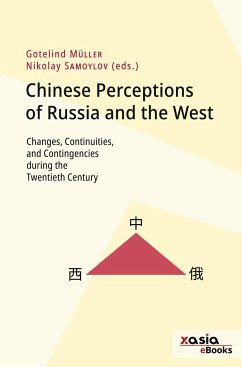This book aims at investigating changes and continuities in Chinese perceptions of Russia and the West during the 20th century, paying heed to the fact that the respective ascriptions and "frontlines" were historically contingent: who and what represented "Russia" or "the West" at a given time and at a given place? Was "Russia" part of "the West", or not? And if it was, in which regard? Which factors - foreign or indigenous - led to changes in Chinese perceptions and representations and why? With such questions in mind, this book was taking shape, growing out of a German-Russian project funded by the DFG-RFBR. The German-Russian research team from Heidelberg University and St. Petersburg State University worked on exploring the topic together with colleagues from mainland China and Taiwan, concentrating on three major areas: 1. The field of socialization via a look into normative descriptions of Russia and "the West" in Chinese school textbooks which define images of the "other/s" from childhood on; 2. The field of literature and Chinese fictional representations of Russia and "the West" consumed by a Chinese reading public; 3. The field of visual and material manifestations which define images of the "other/s" in their own medial way and make them accessible also to a public far from purely discursive levels and to those who do not actively look for them.








